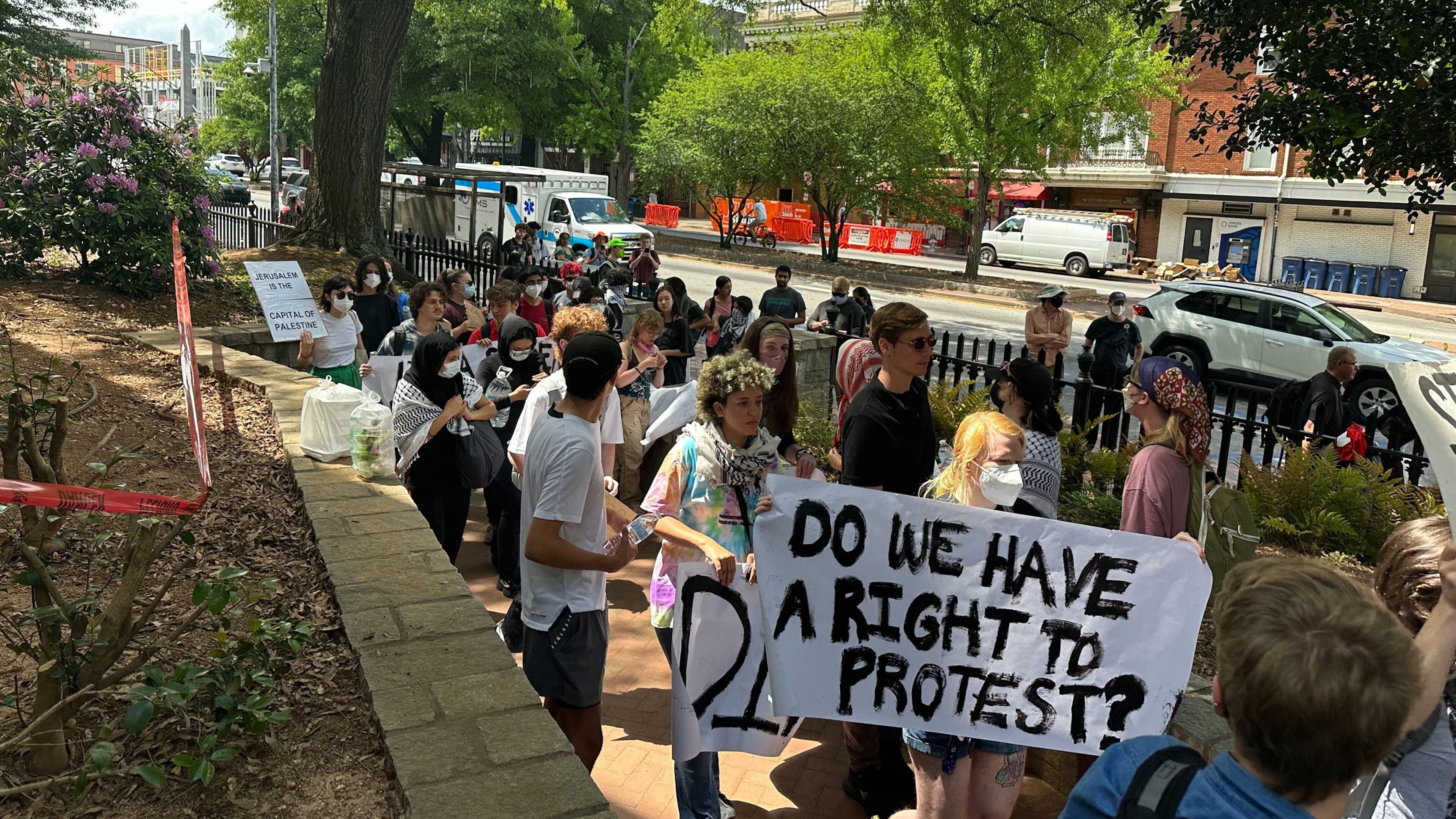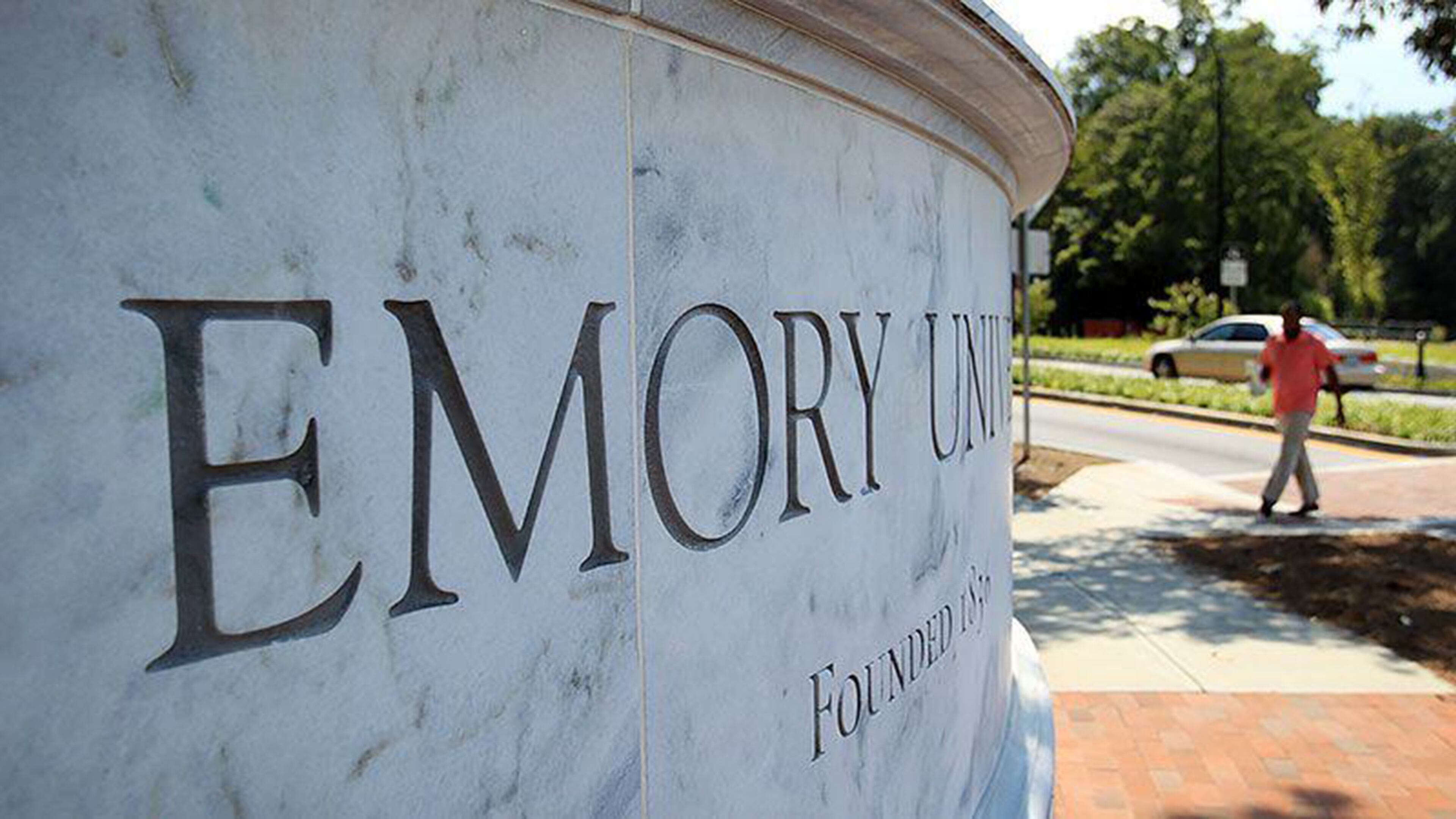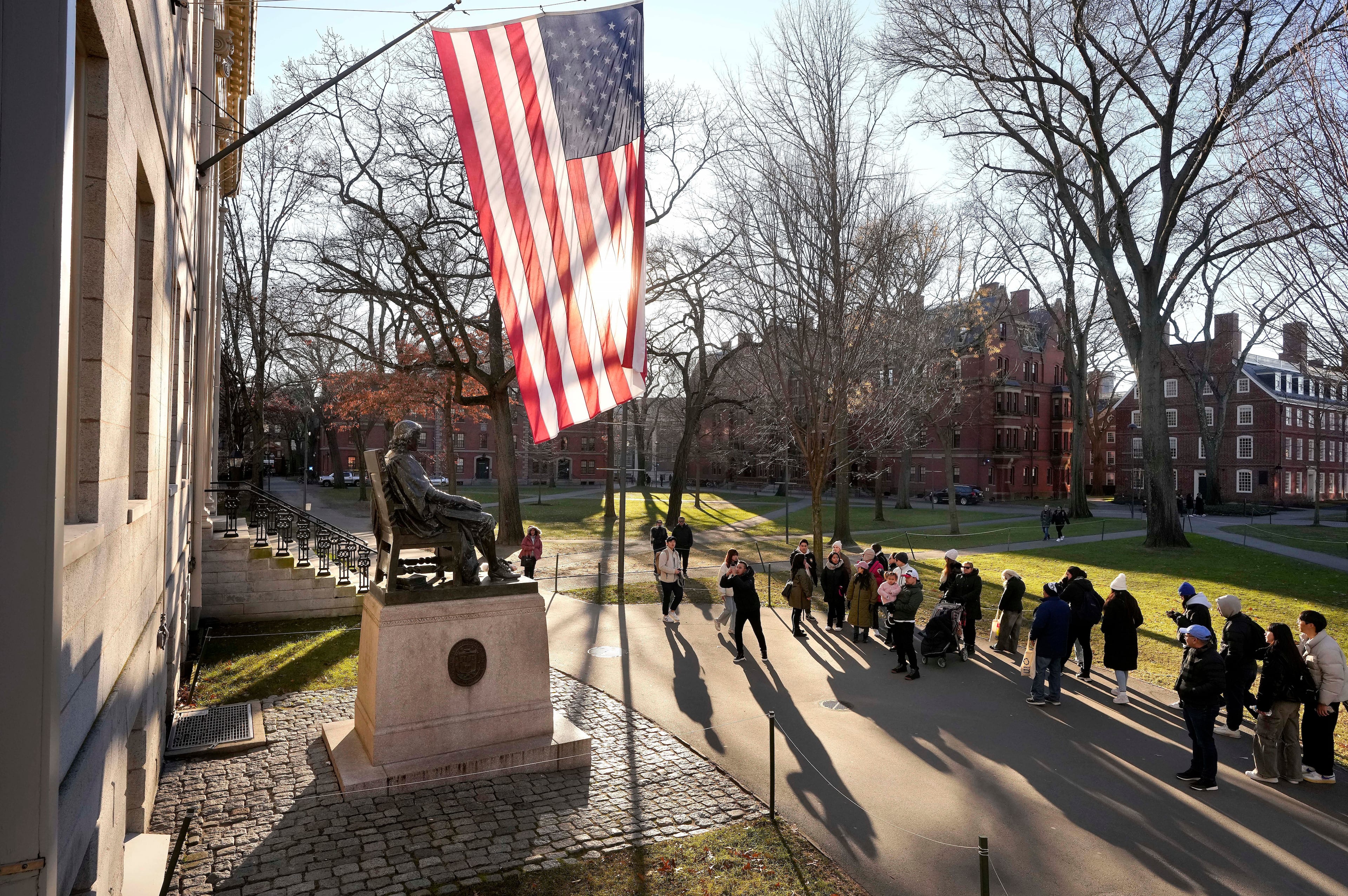AJC On Campus: Free speech in Georgia, colleges warned of cybercrime

Thousands of University System of Georgia employees have received free speech training in recent years, and that training will continue in the run-up to the presidential election.
In this edition of AJC On Campus, we break down what’s in the University System’s annual Report on Free Speech. And stay with us as we bring you more news about professor salaries, an Emory University fine and what prompted a cautionary email sent to public colleges that warns of cybercrime threats.
Free speech at Georgia’s public colleges

Each summer, as required by state law, the University System of Georgia creates a free speech report.
The document, dated July 1 and provided to The Atlanta Journal-Constitution by the University System, said that Georgia’s public colleges prepared extensively for campus protests related to the war in Israel and Gaza “to ensure both that legal expression was protected and that any violations of institutional or USG policy or state or federal law were addressed swiftly.”
The report stated: “Campus and system office planning succeeded, and USG campuses were able to avoid any major disruptions or damage to institution property while supporting everyone’s freedom of expression rights throughout the system.”
Nine students from the University of Georgia were arrested for criminal trespass by UGA police during one protest in late April. Protests also took place at Kennesaw State University and at the private Emory University, among other sites.
The UGA protesters have said they were just expressing their First Amendment rights and were critical of the university’s response to the demonstrations.
Professor pay

An annual compensation survey from the American Association of University Professors outlines what it says are “dire” pay conditions for part-time college instructors.
The report, released in late June, found that pay for part-time faculty members hasn’t changed much in recent years. They received an average of $3,903 for each three-credit course they taught in 2022-2023. During the 2020-2021 year, the average pay per course section was roughly $3,800 and it was roughly $3,900 the following year.
Pay for full-time faculty increased by an average of 3.8% for the 2022-2023 academic year.
The salaries of college presidents, meanwhile, have “outpaced the growth in full-time faculty salaries for years.” The median salary for those leaders ranged from $259,000 to more than $912,000, depending on the type of school during the last academic year.
The report includes data from more than 800 colleges nationwide, including 375,000 full-time and 92,000 part-time faculty.
Quarters vs. semesters
Should Georgia’s public college students enroll in classes by the semester or by the quarter?
That’s the question a Georgia House Study Committee will consider as it assesses the class calendars at the University System of Georgia and the Technical College System of Georgia. The committee was authorized by the state House in March and will be led by Rep. Shaw Blackmon, R-Bonaire.
The University System, which includes 26 schools, fully converted from a quarter calendar to a semester calendar in 1999. The state’s technical colleges have done so since 2011.
The quarter semester calendar is typically three 10-week terms while the semester calendar is two 15-week terms.
One reason for the switch was to align courses within the two systems to make it easier for students to transfer and to make administration work more efficient, according to the resolution authorizing the study committee.
But some observers “question whether semesters are the better option for students or for workforce development” because the schedule results in longer terms and less-frequent graduation cycles, according to the resolution.
The committee’s work is to be completed by Dec. 1.
No phishing
The University System of Georgia is warning employees to beware of cybercriminals bent on snagging direct deposit paychecks through phishing emails.
In late June, the vice chancellor for human resources sent an email to high-ranking officials at Georgia’s 26 public colleges and universities with the subject line “Payroll Fraud Alert - Action Needed!” In the email, Karin Elliott noted “recent attacks targeting USG employees” and announced new security measures to prevent cybercrime.
Going forward, if an employee tries to change their direct deposit information to route their paycheck to certain internet-based banks, the University System’s computer program will require that employee to first validate the change with their school’s payroll office.
Employees should be careful when clicking on links contained in messages and should report suspicious emails they receive.
“Any loss of pay due to an employee’s negligence must be reported and relief sought through the proper law enforcement authorities. If the loss is due to employee negligence, institutions cannot pay an employee a second time because of their financial loss,” the letter said.
Emory University fined

The U.S. Department of Agriculture hit Emory University with a $42,000 civil penalty for alleged violations of the Animal Welfare Act.
The settlement agreement was dated April 30 but publicized in July by the Ohio-based organization Stop Animal Exploitation NOW! or SAEN. The watchdog group tracks the use of animals by university research labs.
The USDA outlined eight alleged violations at Emory dating back to 2019. The incidents included failure to provide sufficient water to animals and mishandling of animals, resulting in the death of several voles. The report also cited concerns related to the death of mice and the condition of several hamsters.
Two monkeys also were found dead in separate incidents after they were trapped inside gaps of an animal enclosure, the report noted.
In a statement, SAEN’s executive director described the fine as “little more than a slap on the wrist.”
In a statement to the AJC, Emory University denied the allegations and said it “made the payment to avoid costs and uncertainties of litigation, and to resolve and close this matter.”
The statement also said: “The university fully understands our responsibility for the health and well-being of research animals and honors this by regularly reviewing our animal care program and facilities, implementing quality assurance measures and training personnel to provide the highest quality, humane care and welfare for all animals involved in Emory research.”
The school said it has long held full accreditation status from AAALAC International, formerly known as the Association for Assessment and Accreditation of Laboratory Animal Care International.
“Emory University will continue to conduct research with animals as part of our commitment to improve the health of our city, nation and world,” the school’s statement said.
If you have any higher education tips or thoughts, email reporter Vanessa McCray at vanessa.mccray@ajc.com.



